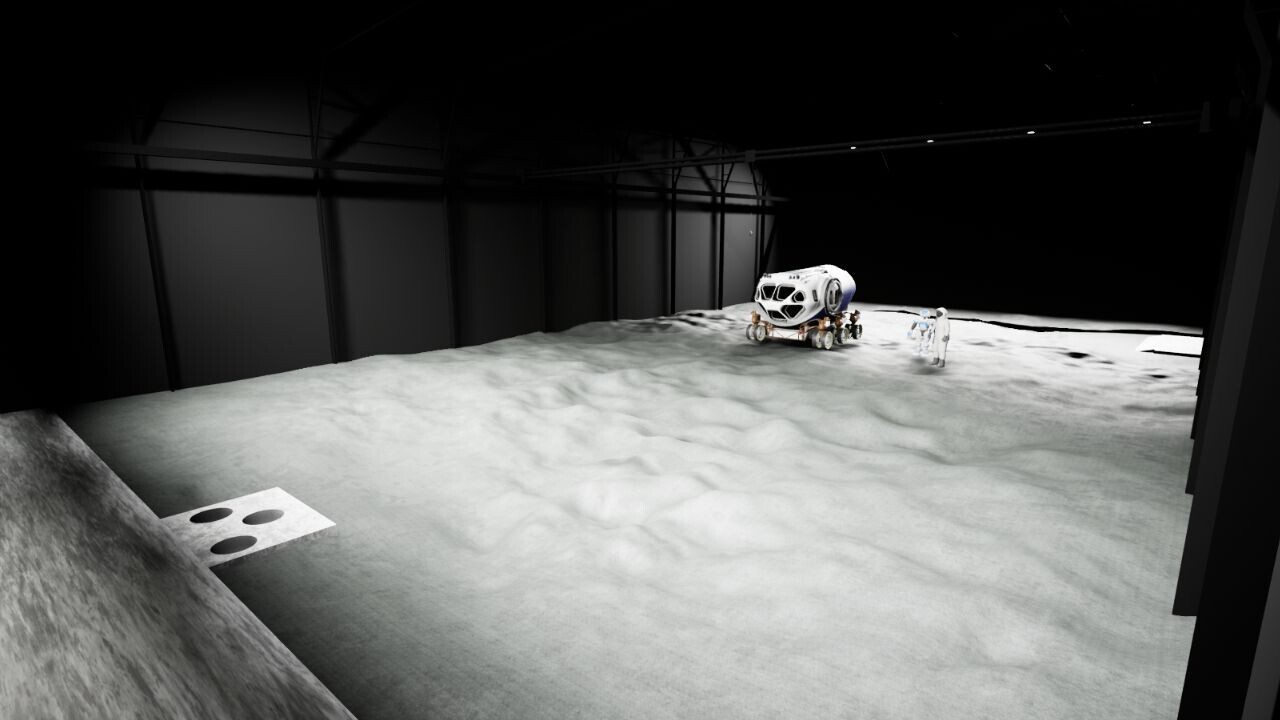
A new recreation of the Moon on Earth has sparked hopes of a “European renaissance” in space.
Known as LUNA, the futuristic facility was inaugurated today in Cologne, Germany. The ceremony showcased several striking features, from a 700-square-metre replica of the lunar surface to a Sun simulator that mimics the Moon’s phases.
Also in the pipeline are a gravity offloading system and an adjustable ramp that simulates lunar slopes.
Operated by the European Space Agency (ESA) and the German Aerospace Agency, the site offers realistic conditions for spacetech R&D.
Startups are already testing their tech on the site. Among them is Spartan Space, which is developing a lunar base camp.
The camp is designed as a payload that spacecraft can robotically land on the Moon. Astronauts would then head towards the base from their initial landing spot, extending their adventures across the lunar surface.
But first, Spartan Space must prove the camp is fit for purpose. “For this, we need LUNA,” said Peter Weiss, the French firm’s co-founder and CEO.
“We can put our habitat in there and test robotic operations. We also planning to test it with astronauts.”
Weiss has high hopes for LUNA — and not only for his startup. He believes the site can underpin “a renaissance in European space exploration.”
Such a boost can’t come soon enough.
The Moon is
In the new race to the Moon, Europe has fallen behind the US and China. LUNA provides a chance to catch up.
The site will facilitate research, development, and integrated testing of lunar technologies. Space agencies, researchers, and businesses can all access the facilities.
Josef Aschbacher, ESA’s director general, said the site places Europe “at the forefront of lunar exploration and beyond.”
Spacetech funders are also upbeat. Lucas Bishop, an associate at investment firm Seraphim Space, called the site’s inauguration “a significant milestone for Europe.”
“As we progress towards establishing a self-sustaining lunar economy, testbeds like LUNA will be indispensable for testing and refining new technologies and concepts,” Bishop told TNW.
For Europe’s startups, the simulator offers a promising launchpad. By demonstrating their tech in a realistic environment, they can prove the systems work and attract worldwide partners.
Weiss wants them to carve unique niches. “Everybody is concentrating on bringing astronauts to the lunar surface,” he said. “Europe should bring auxiliary elements — what I call the lunar logistics.”
These logistics are diverse. Deep lunar exploration will require a dizzying array of tech, from robotic landers and lunar rovers to oxygen production and energy storage.
Many of these systems could eventually return to Earth. But for now, LUNA will focus on the cosmos — and so will Weiss.
“Europe needs to go to the lunar surface,” he said. “LUNA is a gateway to that.”
Get the TNW newsletter
Get the most important tech news in your inbox each week.





